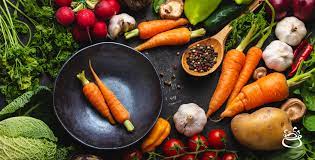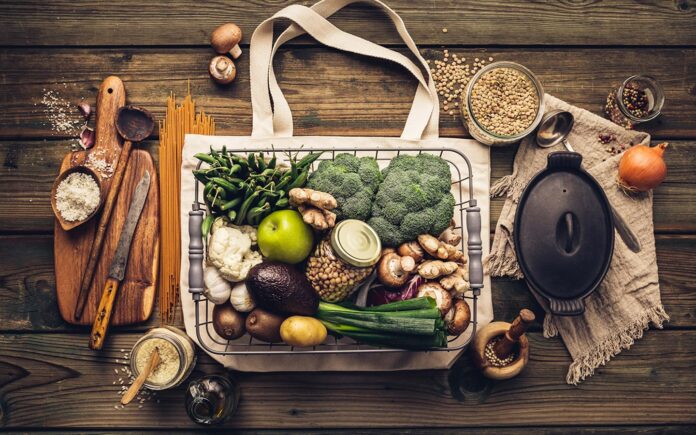Introduction to Sustainable Cooking
Sustainable cooking is a culinary approach that focuses on minimizing environmental impact while promoting healthy eating habits. It involves making conscious food choices and adopting practices that support the well-being of the planet and its resources.
Principles of Eco-Friendly Cooking
Using Locally Sourced and Seasonal Ingredients
Sustainable cooking prioritizes the use of locally sourced and seasonal ingredients. By choosing produce that is in-season and grown nearby, one reduces the carbon footprint associated with transportation and supports local farmers.
Minimizing Food Waste through Smart Kitchen Practices
Practicing mindful meal planning, proper storage, and utilizing leftovers creatively can significantly reduce food waste. Embracing root-to-stem cooking and utilizing ingredients fully are integral aspects of sustainable kitchen practices
Opting for Sustainable Cooking Methods and Appliances
Choosing energy-efficient appliances and eco-friendly cooking methods like steaming, stir-frying, and using smaller appliances when possible contributes to reducing energy consumption and minimizing environmental impact.
Eco-Conscious Recipes
Seasonal Vegetable Stir-Fry with Quinoa
This vibrant dish features locally sourced seasonal vegetables stir-fried with protein-rich quinoa, offering a nutritious and eco-friendly meal that celebrates fresh, sustainable produce.
Zero-Waste Veggie Soup
Utilizing vegetable scraps and leftover produce, this zero-waste soup minimizes food waste by turning kitchen scraps into a flavorful, nutrient-packed soup, promoting sustainability in every spoonful.
Plant-Based Burger Patties
These homemade plant-based burger patties, crafted from sustainable ingredients like beans, grains, and spices, offer a delicious and eco-friendly alternative to traditional meat-based burgers.
Implementing Sustainable Practices
Composting and Recycling in the Kitchen
Setting up a composting system for food scraps and practicing recycling helps divert organic waste from landfills, contributing to nutrient-rich soil for gardening while minimizing environmental impact.
Reducing Meat Consumption and Exploring Plant-Based Options
Reducing meat intake and incorporating more plant-based meals into the diet positively impacts the environment by conserving water, reducing greenhouse gas emissions, and promoting animal welfare.
Supporting Local Farmers and Sustainable Food Initiatives
Choosing locally grown produce and supporting sustainable food initiatives such as farmer’s markets or community-supported agriculture (CSA) programs fosters a resilient food system and reduces the carbon footprint associated with food transportation.
Benefits of Sustainable Cooking
Environmental Impact and Conservation of Resources
Adopting sustainable cooking practices contributes to reducing carbon emissions, preserving natural resources like water and soil, and protecting biodiversity for a healthier planet.
Health Benefits and Nutrition in Sustainable Diets
Sustainable diets, rich in plant-based foods and nutrient-dense ingredients, offer numerous health benefits, including lower risk of chronic diseases and improved overall well-being.
Community Engagement and Fostering Local Economies
Supporting local farmers and sustainable food systems not only benefits the environment but also strengthens local economies, fosters community connections, and promotes food security.

Conclusion
Sustainable cooking is a conscious and impactful way to nourish both oneself and the planet. By embracing eco-friendly practices, incorporating sustainable recipes, and supporting local food systems, individuals can contribute to a healthier and more sustainable future.
Unique FAQs
- How does sustainable cooking differ from traditional cooking methods?Sustainable cooking emphasizes minimizing environmental impact through conscious ingredient choices, reducing waste, and adopting eco-friendly practices, whereas traditional cooking methods may not consider these environmental factors.
- Can anyone adopt sustainable cooking practices, regardless of their culinary skill level?Absolutely! Sustainable cooking practices like meal planning, reducing food waste, and supporting local farmers are accessible to individuals of all culinary skill levels and can be easily incorporated into daily routines.
- Are sustainable ingredients more expensive than conventional ones?While certain sustainable ingredients might have slightly higher costs, choosing seasonal, locally sourced produce and reducing meat consumption can make sustainable cooking cost-effective and budget-friendly in the long run.
- How can I start practicing sustainable cooking if I live in an area without access to local farmers’ markets?Even without local markets, individuals can opt for seasonal produce available at supermarkets, join community-supported agriculture (CSA) programs, or grow their own herbs and vegetables at home to support sustainable practices.
- Can sustainable cooking positively impact climate change?Yes, adopting sustainable cooking practices, such as reducing meat consumption, minimizing food waste, and supporting sustainable food systems, plays a significant role in mitigating climate change by reducing greenhouse gas emissions and preserving natural resources.


